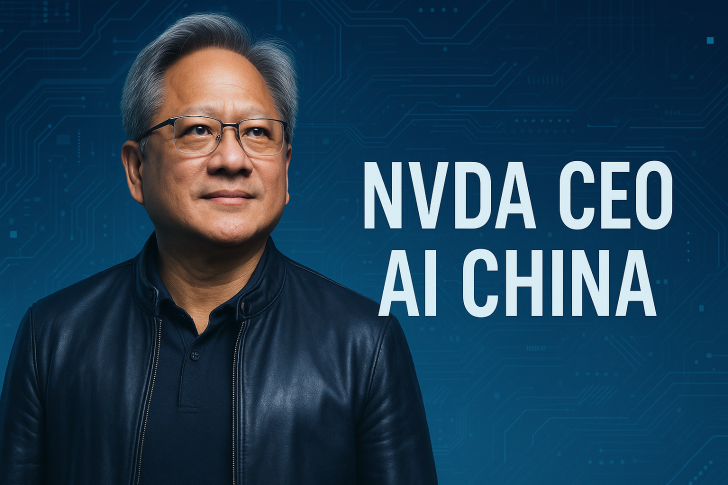The race for AI supremacy is heating up worldwide, and it's no longer just about who builds the best models. It's about who can deploy them fastest and at scale. Recent comments from NVIDIA's CEO highlight a competitive landscape where the U.S. and China each hold distinct advantages - and where America's lead may not be as secure as many assume.
Where Each Side Stands
In a recent statement shared by The Transcript, NVIDIA's CEO broke down the competitive dynamics. The U.S. still leads in chip design and cutting-edge semiconductor tech - areas where NVIDIA itself dominates.
But China has pulled ahead in energy infrastructure, which matters enormously when you're training models that consume massive amounts of power. Meanwhile, while American companies like OpenAI, Anthropic, and Google's Gemini produce the most advanced AI systems, China's open-source community is iterating quickly and, in some areas, catching up faster than expected through collaboration and rapid development cycles.
The Application Gap
What caught the CEO's attention most is how fast China is moving on applications. Thanks to lighter regulation and a culture that embraces new tech without hesitation, Chinese companies are pushing AI into real-world use cases at a pace the U.S. struggles to match. "Their society is very quick in adopting new technology," he noted, warning that this speed in deployment could become China's defining edge. It's one thing to build great technology; it's another to get it into users' hands and iterate based on real feedback.
What This Means Going Forward
The CEO's warning reflects a more complex picture than simple tech leadership. China's cost-effective energy infrastructure enables cheaper scaling. Their open-source momentum drives faster innovation. And their regulatory environment allows quicker commercialization. The U.S. may lead in chips and frontier models today, but China's advantages in infrastructure, collaboration, and deployment speed create a serious challenge. The message is clear: winning the AI race will require more than just technological breakthroughs - it demands the ability to adapt quickly as competition evolves on multiple fronts at once.
 Saad Ullah
Saad Ullah

 Saad Ullah
Saad Ullah


